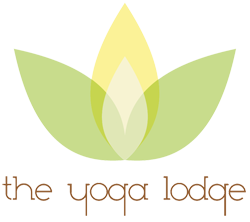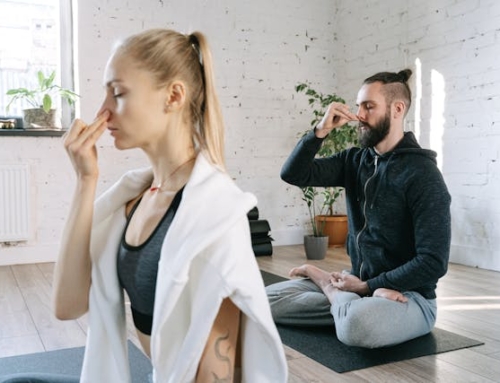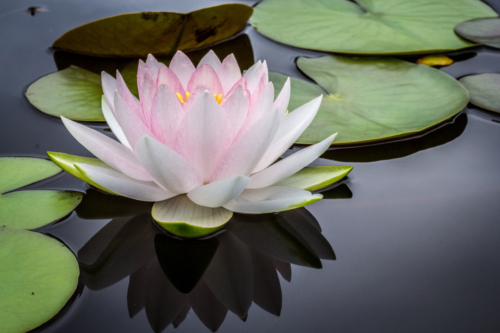
Understanding Why We Need To Meditate
Welcome to my Blog on Understanding Why We Need To Meditate. So, why do we need to meditate? If anything lessens our feelings of security and comfort, our body will react in a way that helps us either fight to stop whatever made us unhappy, or run away to escape it. Scientists call this physical reaction to feeling threatened, ‘the fight or flight response’. If this response happens often, it can cause harm to our body and mind. It can seriously rob us of our happiness and health. Over time, the physical response to stress, speeds up the rate of wear and tear, and ageing of the body, and makes us more vulnerable to many illnesses.
All sorts of situations can make us feel threatened every day. Most of us have felt the fear of a narrow escape when driving, or the insecurity when a friend lets us down. Many of us regularly experience the effects of mild, or even intensely stressful situations. Some people report that they are mostly always tense and seldom feel really safe, secure, and relaxed. The fearful feelings of anxiety, guilt, panic and dread that we experience when tense, are due to the fight or flight response. To be happy and relaxed we need to understand the fight or flight response and learn when and how to calm it down. Practicing meditation gives us both the understanding, and the skills to calm body and mind.
Fortunately, research has shown that the practice of meditation creates a different response in the body, the very opposite response to the fight or flight syndrome, scientists have called this, ‘the relaxation response’.
And what is so good about meditating regularly is that an experienced meditator can switch on the ‘relaxation response’ and switch off the ‘fight or flight response’ whenever they want to.
The Fight Or Flight Response
If we are faced with real danger, such as seeing a poisonous snake, or even an imaginary danger, such as mistaking a coiled up piece of rope in the shadows as a poisonous snake, our nervous system leaps into action, making it possible for us to fight or flee from the real, or even imagined snake. An area in our brain called the hypothalamus tells our pituitary gland to inform the adrenal glands to produce the hormone adrenaline. At the same time, the other sympathetic nerves in our body secrete noradrenalin. Noradrenaline, also known as norepinephrine, plays a crucial role in the body’s “fight or flight” response, acting as both a neurotransmitter and a hormone to increase heart rate, blood pressure, and energy levels, while also enhancing alertness and focus.
Our endocrine system secretes hormones directly into the bloodstream to give us the energy to fight or flee. Vasopressin constricts blood vessels, endorphins suppress pain so that we can fight or flee without being stopped by pain, and thyroxin increases our metabolic rate.
Adrenalin and glucocorticoids cause the liver to flood the blood stream with glucose, giving us the fuel we need to fight or flee. Normally we can feel these changes occurring, our body temperature increases and we feel hot and perspire, also our breathing pattern changes as our oxygen consumption increases speeding up our breathing rate. As the metabolic rate increase in the cells, we feel agitated and shaky.
This response to stress also produces a huge range of other effects. It has been described as the body acting like a nation at war, diverting resources from less important services to the battlefront. Indeed, that is exactly what happens, for example, our digestion slows down, our immune system slows down, and the process of energy storage and the functioning of our reproduction system, amongst other things, switch off. Dealing with the threat to our security, be that a real or imaginary threat, becomes priority for the body.
All these processes prepare the body to fight, or escape from whom, or what, caused our experience of stress, worry or fear. The fight or flight response is programmed in each of us to make sure we survive and feel safe and secure. It works quickly and efficiently without us even thinking about it. Its purpose is to save our life and keep us safe. The response itself is not a problem. Should we ever be really under an immediate threat such as facing a tiger, or a mugger, an efficient fight or flight response will help us out, and hopefully save our life.
In real danger, the fight and flight response quickly provides the necessary resources to conquer, or escape. Once all the fight or flight chemicals, nutrients and hormones are used up by fighting or fleeing, the now safe and secure body/mind calms again. This system worked very well for early humans who actually faced real dangers on a regular basis. They needed to fight or flee from tigers, wolves and other life threatening situations.
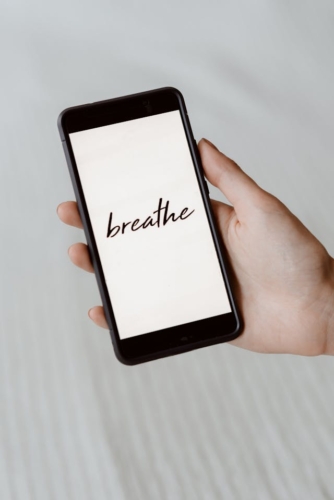
However, when we modern humans get stressed we set off the same reaction in our body, yet we do not have the same opportunity to fight or flee from the causes of our stress. The things that cause us stress are different.
We cannot fight someone on the street for stepping on our toes, or run away from a unexpectedly high credit card bill. But still, we have the same internal physical reaction. The fight or flight response that once saved early humans, now sometimes becomes the enemy of us modern humans. Over time the chemicals set off by the fight or flight response can slowly cripple us from within, simply because we are living a completely different lifestyle to our hunter gatherer ancestors. Our fight or flight response is out of date and has not caught up with how best to deal with often milder, but more frequent stresses we experience in our lives today.
With this out-of-date system, we can find ourselves becoming stuck in an agitated, or stressed out state. We discover we still get upset when feeling our sense of safety being threatened, maybe by losing a partner to another, or losing a job, or simply by feeling inadequate in a competitive environment. However, for us to survive in our modern world we need to be accepted by society and so it doesn’t work to physically fight, or turn and run from the people, or situations that upset us. That means that the chemicals released by the fight or flight response, creating anger to encourage us to fight, or fear to encourage us to flee, are not used up and instead they hang around our system sustaining fearful or angry emotions and anxious thoughts. This is a problem for all of us. It can be that we calm down a little, but often not back to the fully relaxed state. Instead, we stay in a place of lower, but chronic tension that can eat at us all day, or even longer. Our modern human lifestyle creates chronic tension, which means we feel scratchy and then tend to get stressed out at the slightest irritation. Our body/mind can be wound up sometimes for days, weeks, even months, or a lifetime! Scientists call it ‘simmering stress’.
We need (without getting over anxious about it!) to learn how to master the controls of our own bodies, because too much stress, for too long, can be very detrimental to our health.
High blood pressure can give rise to heart disease, kidney failure and respiratory failure. High metabolic rates can result in fatigue and cell damage. Muscular tension can lead to physical pain and injury. Constricted respiration and heart functioning can lead to asthma and lung infections. Reduced blood supply to the digestive system and excess hydrochloric acid in the stomach can produce a range of gastro-intestinal problems. The immune system, which protects us from infection and disease, seems to suffer the most under chronic stress. A poor immune system affects everything, in particular allergies, arthritis, asthma and cancer. Even most back ache is caused by stress.
It is important to often ask ourselves the questions “Is my body in a stressed state? Do I need to relax myself more?” Because while the fight or flight response is not a health problem in itself (all animals need it for survival), we do really need to recognise that to be stressed when necessary is good, but only when necessary, and only short term, as soon as possible we need to return to a relaxed state.

Meditation Heals
Meditation is the answer. If our body is stressed out, we can turn that around within minutes. Meditation does just that. Meditation relaxes the body. There are many ways to learn to relax; progressive relaxation, breathing techniques and visualisations are just a few. Sitting meditation has been researched thoroughly over the years and the results are very good.
Meditation will teach you how to activate the relaxation response where and when you need it. Research has shown that those who meditate regularly can, when stressed, not only return to a relaxed state more quickly, but also do not get so agitated in the first place. A meditators body is less responsive to noradrenalin.
Meditation relaxes our body, our mind also calms down, during meditation our whole being is in a self-healing state.
Meditation creates ‘the relaxation response’. The relaxation response is the opposite of the fight or flight response. It causes a steep drop in metabolic activity, reducing blood lactic acid levels and muscle tension, slowing breathing and lowering high blood pressure. It creates a shift from faster beta brain waves to slower alpha, theta and delta waves giving the experience of peace.
We can often experience the relaxation response occurring as we meditate, muscular tension is reduced and we feel our body softening, our breathing changes indicating a slower metabolic rate, we feel warmth or tingling on the skin, showing blood returning to the surface, often we notice more saliva or tummy rumbling as the digestive system returns to normal.
Meditation is the perfect antidote to stress. Too much stress has us feeling angry and tired, and worse still, over years it can cause illness and premature death.
Meditation may not make us blissfully happy every moment of our life, but even a short session, that perhaps seemed a bit flat, will still lower our physical and mental tension. Research shows that lowering our stress levels even by five percent could prevent illness and add years to our life.
Daily meditation is perfect as a life enhancer by keeping us more youthful, energised, healthy, happy and alive for longer. It does us good and makes us feel good. Why then isn’t everyone meditating? Why do we find it so difficult to practice? There are obstacles to overcome before we can gain the benefits of meditation.
Our Emotions Make It Difficult To Sit With Ourselves
As we are so familiar with the speedy tense ‘stressed out’ state, we feel uncomfortable about slowing down. It feels as if it is going against our survival system. It feels that way because through the pressure we are put under by society and our families and ourselves, we seldom take our finger off the alarm button. We can quite easily get into being 24/7 anxious! Try telling someone to slow down, sit down, and take a few deep breaths when they have high alert screaming inside them! It feels wrong to waste ‘essential fighting, or escaping time’ just sitting on a cushion dropping thoughts of potential danger and doing what can seem like a boring and mundane task of following each breath.
We soon come to face, when sitting to meditate, the fact that we are inwardly tense and have painful emotions. We are all familiar with feelings of disappointment, failure, inadequacy and resentment, although we normally try to avoid noticing them. To sit for five minutes faced with these negative emotions is hardly relaxing! Our negative emotions contain a tension that makes us want to do something active because they fire off the fight or flight response. Trying to avoid anything uncomfortable is often our biggest obstacle to having a happy life. Creating the relaxation response, can make us feel a lot better emotionally, giving us a brief mental/emotional rest or holiday.
Yet meditation can be far better than that….
After a while, we can, during our meditation practice, calmly look at the distressing emotions such as anger, or sadness. We can, while sitting quietly, take a step back from them, noticing that all thoughts and feelings come and go without us having to act upon them. In this way, we learn to detach more and more from our previously uncontrolled negative emotions and allow our more reasoning mind to steer our life.
By sitting regularly, we can learn to be relaxed in the middle of life, rather than needing to fight it or escape it.
Meditation teaches us to watch and know ourselves. Watching allows us to notice our stress signals such as a headache, or a churning sick feeling in our stomach. Awareness of our body responses to life means that we can calm ourselves, thus immediately lowering stress levels. By watching ourselves we also learn what our habits are, and understand ourselves more. We notice where we set off our ‘fight or flight’, what things ‘get to us’, and where we overreact.
How Many Ropes Do We Mistake As Poisonous Snakes?
This observation and insight, that only meditation can teach us, gives us information to prevent further distress. We realise things about ourself we simply hadn’t seen before, mostly because we were too busy being stressed and scared about our well-being.
Sitting often shows us our strengths. Most meditators report feeling much happier about themselves and far more self-reliant than they did before they practised regular meditation. The main benefit of meditation is to know ourselves, to ‘Self Realise’ (to Realise who our Self is). At a deeper philosophical level we begin to realise that we are not the body, or the mind and its emotions. We can see the unity of all life. Such seeing dissolves worry.
It is important to acknowledge that meditation takes practice. Certainly, we need to be patient. Just as in learning to do anything, such as learning to speak a foreign language, or drive a car, or play an instrument, we are faced with our inability at first. It can all seem so frustrating and therefore more stressful.
If though, we are prepared for initial feelings of inadequacy and are willing to watch those as well, and then keep plodding on, we will reap the rewards of becoming an experienced meditator.
Patient perseverance is the key. It might not be easy, but it is certainly worth it.
Regular meditation makes each moment of our lives sweeter, richer, and more worthwhile.
The alternative is not so happy. A tense life is not much fun. Being tense means living with an aching body, or feeling tired a lot, or ill. Being tense means living with a fearful mind, often anxious, angry and resentful.
Meditation takes just a few minutes, maybe half an hour each day. The results stay with us always.
A recent study showed that experienced meditators were happier and more satisfied, not only during their meditation period, but were also more accepting and content throughout the day.
Imagine what the world could be like for human beings, if we all sat quietly and meditated for just twenty minutes each day.
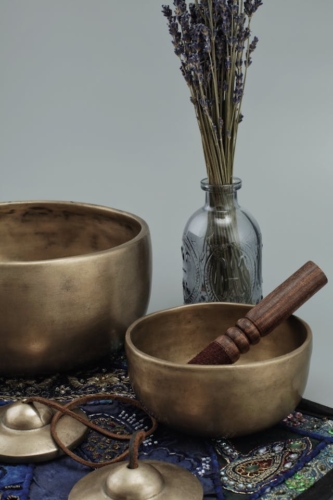
Peace really does begin with me!
As a Teacher of Meditation and Hatha Yoga, I offer one to one, or group Meditation sessions. Start your Meditation journey today by giving me a call on 07973 410375, or drop me an email at pavana@theyogalodge.org.uk, or for further details on my Yoga Classes, check out my website at www.theyogalodge.org.uk
